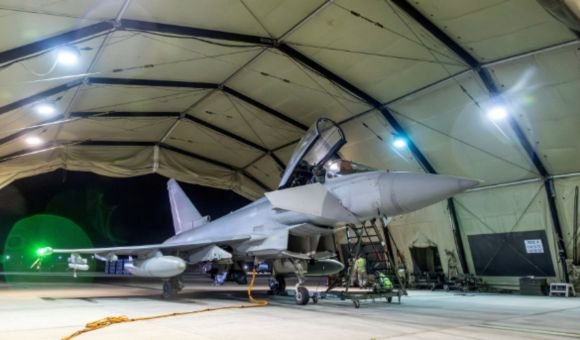The United States conducted an additional strike against Houthi forces in Yemen on Friday. This strike targeted a radar site and was carried out by the guided missile destroyer Carney, using Tomahawk missiles. The goal of this strike was to degrade the Houthi’s capability to attack maritime vessels, including commercial ones, in the Red Sea.
This action followed a series of strikes by American and British forces on Houthi facilities the day before. The Houthi movement’s television channel reported that the U.S. and Britain were also targeting the Yemen capital, Sanaa, with raids.
There are growing concerns about the possibility of a broader regional conflict. U.S. and British warplanes, ships, and submarines have launched missiles against Houthi-controlled targets in Yemen. The Houthi group has framed its maritime campaign as support for Palestinians in Gaza who are under siege by Israel.
President Biden has warned that more strikes could be ordered if the Houthi attacks on merchant and military vessels in the Red Sea continue. The initial strikes focused on disrupting the Houthi’s ability to store, launch, and guide missiles and drones, which they have used to threaten shipping in the Red Sea.
The United Nations Security Council saw a division of opinions, with the U.S. defending the strikes as necessary to protect vessels and commercial shipping, while Russia expressed concerns about the escalation of conflict in the region.

The situation has raised concerns about potential disruptions to oil supplies and shipping in the Red Sea, which could impact oil prices and global supply chains. Some countries have provided logistical and intelligence support for the strikes, while others have expressed reservations or chosen not to participate. Iran has been accused of providing military capabilities and intelligence to the Houthi group, but there is no indication of direct conflict between the U.S. and Iran at this time.
The Houthi attacks have forced commercial ships to take longer and costlier routes around Africa, leading to fears of inflation and supply chain disruptions. Container shipping rates for key global routes have also risen in response to these developments.


